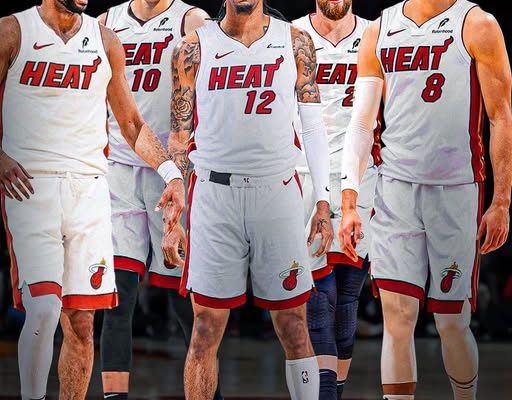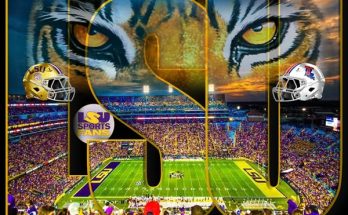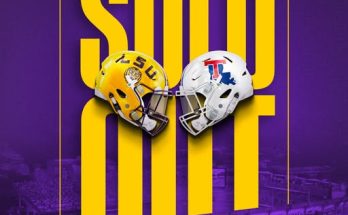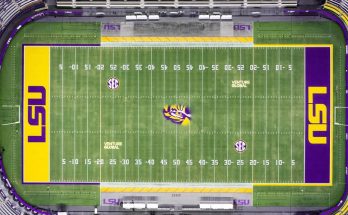In the ever-evolving NBA landscape where championship windows open and close in the blink of an eye, Pat Riley’s Miami Heat remain the sport’s eternal poker players—calculating, cool, and often one move away from swinging the balance of power. As sports betting outlet Bovada releases its odds on the next superstar expected to be moved, a familiar specter begins to take shape behind the scenes: the Heat, silent but dangerously positioned, are once again in the shadows. While some franchises build for tomorrow, Riley’s franchise doesn’t wait for the perfect opportunity—it creates it. And the signs suggest that Miami is lurking for its next big swing, with a quiet menace that demands attention.
Miami’s track record of building championship-level rosters is built not just on savvy acquisitions, but on a culture that few franchises can rival. From drafting Dwyane Wade and building around him, to luring LeBron James and Chris Bosh to South Beach, to trading for Jimmy Butler and resurrecting their title hopes yet again, the Heat under Riley have never hesitated to go all-in. This isn’t just about cap space or trade assets—it’s about a psychological warfare few front offices can withstand. While franchises panic, the Heat calculate. When others show their cards, Riley holds his tight, confident he’ll win when the pot is biggest.
As Bovada begins circulating names like Donovan Mitchell, Trae Young, Karl-Anthony Towns, and even Joel Embiid as potential stars to be moved, it’s hard not to view each of these possibilities through a South Florida lens. Miami may not be the current betting favorite for many of them, but history shows they don’t need to be. The Heat don’t leak their intentions. They let chaos unfold elsewhere and strike when it counts. Even now, as media narratives swirl around teams like the Knicks, Lakers, and Warriors, Miami’s front office is working with the kind of measured aggression that has defined Riley’s regime for over two decades.
There’s no mistaking that last season ended in disappointment. Despite a Finals run in 2023, the 2024 Heat bowed out in the first round. Injuries and roster stagnation hurt, and Jimmy Butler’s absence in the playoffs didn’t help their case. Still, Miami’s nucleus remains competitive—anchored by Butler, Bam Adebayo, and a deeply embedded team culture. The problem isn’t foundation, it’s firepower. They need that one more star, that jolt of offensive production and gravitas that can take the pressure off Butler and give Erik Spoelstra the chess pieces to win another Eastern Conference war. That’s where the Bovada list becomes fascinating. Every player on it represents a potential Heat reclamation project or elevation piece—something Riley has turned into an art form.
Take Donovan Mitchell for instance. Despite his All-NBA talent and success in Cleveland, rumors have consistently linked him to other franchises—particularly those with a culture he can trust. Miami checks every box. Mitchell’s father works for the Mets and his family has ties to the East Coast. The Heat can offer him a chance to win now, not in a rebuild. With Butler aging but still elite and Adebayo in his prime, Mitchell could be the younger offensive engine who carries the load when Butler can’t. Bovada’s odds may place the Knicks or Nets as favorites, but Miami’s leverage isn’t always in the media’s spotlight—it’s in their ability to convince stars behind the scenes.
Then there’s Trae Young. While his fit in Miami’s defensive-minded system may not appear seamless on paper, Riley has never been one to dismiss talent outright. If Young is indeed ready to leave Atlanta and embrace a culture that prioritizes winning, Miami has a structure that could mold him. Young’s playmaking and shot creation could help unlock Adebayo offensively and take immense pressure off Butler. Of course, a deal would require considerable asset movement, perhaps including Tyler Herro or draft capital, but again—when the target is the right one, Riley has never blinked.
Karl-Anthony Towns presents an even more intriguing hypothetical. The former No. 1 pick has all the offensive tools to thrive in a Heat system that could cover for his defensive deficiencies. Pairing him with Adebayo could finally unleash a twin-tower attack that leverages Towns’ perimeter shooting and Adebayo’s elite switchability. More importantly, Towns may be the kind of player who needs structure and accountability—two pillars of the Miami Heat organization. With Minnesota already paying massive salaries to both Towns and Rudy Gobert, they may eventually face a decision. And if they make Towns available, Riley will surely be ready.
Of course, the white whale remains Joel Embiid. There is no definitive sign the 76ers are willing to move their MVP just yet, but with James Harden gone, Tyrese Maxey still unproven as a true No. 2, and Philadelphia yet to reach the Eastern Conference Finals during Embiid’s tenure, the clock is ticking. If another season ends in failure, Embiid may begin to reevaluate his loyalty. Should that day come, Miami becomes a natural destination. Riley has long prioritized stars who can anchor both ends of the floor, and Embiid’s blend of rim protection, scoring, and toughness would make him the ideal Heat centerpiece.
What makes Miami’s potential moves even more viable is their asset base, contrary to public perception. While they may not have the sheer volume of picks like Oklahoma City or New Orleans, they have something arguably more valuable—playable, productive young players with upside. Tyler Herro is still just 24 and has shown 20-point-per-game scoring ability. Jaime Jaquez Jr. and Nikola Jović offer intriguing development paths, and both showed flashes last season that would entice rebuilding teams. Add to that Miami’s always-available unprotected future firsts, and you have the skeleton of a package that could be tweaked for almost any star Bovada lists.
Then there’s the Riley factor itself. Few front office figures command the respect of players and agents alike the way Pat Riley does. When he sits across from a star, he’s not pitching pipe dreams—he’s showing rings. Multiple players have said privately that joining the Heat feels like entering a championship boot camp. It’s rigorous, yes, but players come out better. Look no further than Jimmy Butler’s transformation from an often-misunderstood talent in Chicago and Minnesota to the stone-cold killer who carried Miami to multiple deep playoff runs. The Heat believe in their system, and they sell that belief with conviction. Stars gravitate to that. Especially ones who feel their talents are being wasted elsewhere.
Another factor working in Miami’s favor is the state of the Eastern Conference. With Boston looking like the juggernaut of the moment, and Milwaukee aging around Giannis Antetokounmpo, the window is cracked open. New York is ascending, but unproven in May and June. Cleveland is talented but unbalanced. Philly is still searching for its identity. Miami’s track record—three Eastern Conference Finals appearances in five years—gives them credibility none of those teams can replicate. Add the right star to that mix, and they could quickly reclaim top-tier contender status. That’s what makes their patience dangerous. They’re not just waiting—they’re preparing.
One common criticism of the Heat is that their plan hinges too heavily on Butler, who turns 36 next season and has dealt with various injuries. But in Riley’s view, windows aren’t meant to last forever—they’re meant to be seized. If Butler has one more elite postseason left, it would be a failure not to maximize it. Bringing in a younger star doesn’t just help win now—it futureproofs the franchise. That duality—win now while prepping for tomorrow—is what Riley has mastered since the early 2000s. When he traded for Shaq, when he drafted Wade, when he assembled the Big Three, even when he grabbed Butler—every move served two timelines: the present and the next phase.
Even if the Heat don’t strike now, their track record means they’ll be involved until the moment a star decides they’re done with their current team. They don’t need public approval. They don’t need to dominate headlines. That’s never been the Heat’s brand. Their success lies in discretion, in waiting for the right player to whisper the right desire to the right agent—who then calls Miami. By then, it’s usually already in motion. A flight is booked. A locker is cleared. A banner gets envisioned.
So as Bovada’s odds circulate across social media, and fans debate where the next superstar will land, remember that the Heat are always present. Maybe not on Twitter. Maybe not on ESPN’s hot takes. But behind the scenes, in the shadows, Pat Riley is watching. He’s planning. And when the moment is right, he’ll move with the kind of certainty that only comes from doing it before.



